Programa de Pós Graduação em Biologia de Fungos (PPGBF)
 The Program The Program
The Program The Program
The Postgraduate Program in Fungal Biology is linked to the Department of Mycology, of the Center for Biosciences of UFPE, and aims to train professionals in the various areas of Mycology.
Created in 1980, under the name of Master's Degree in Cryptogams, under the responsibility of the Departments of Botany and Mycology, it had three areas of concentration: Mycology, Phycology and Bryology/Pteridology.
In 1996, on the recommendation of CAPES, considering the predominance of the area of Mycology over the others, the Course was restructured, becoming the Master's Degree in Fungal Biology, with the other areas being incorporated into the Master's Degree in Plant Biology.
In 2000, the course was expanded, creating the Doctorate level, hence the current name of Postgraduate Program in Fungal Biology. In 2016, the research lines were updated to Taxonomy and Ecology of Fungi and Genetics and Molecular Biology of Fungi as research lines in the area of Basic Mycology, and Fungi of Agronomic Interest, Fungi of Biotechnological Interest and Fungi of Medical Interest in the area of Applied Mycology. In 2021, Basic Mycology underwent reformulation with the extinction of the research lines Taxonomy and Ecology of Fungi and Genetics and Molecular Biology of Fungi and the creation of the new research line Diversity, Conservation and Molecular Biology of Fungi. Applied Mycology remained with the same lines.
The Course is accredited by the MEC (Ordinance 490/97) and classified by CAPES, four-year evaluation 2017-2020, with degree 6 and recognized by the Ministry of Education by Ordinance 1077/2012.
The Program is consolidated and, since its creation, has graduated 402 masters and 163 doctors in Fungal Biology up to 2024.
Master's Degree
In 1997, on the recommendation of CAPES, the Master's Degree in Cryptogams was restructured, becoming the Master's Degree in Fungal Biology.
To obtain the Master's Degree in Fungal Biology, the student is required to:
-
Remain in the Course for a minimum period of 12 months, or a maximum of 24 months;
-
Complete a minimum of 24 credits, 16 in mandatory subjects and 8 in elective subjects;
-
Carry out research activities and have a dissertation approved in the chosen area of concentration.
Doctorate
The Doctorate level course was authorized by the MEC in 2000.
To obtain the Doctorate degree in Fungal Biology, the student is required to:
-
Remain in the course for a minimum period of 24 months, or a maximum of 48 months;
-
Complete a minimum of 24 credits, 8 of which are mandatory subjects and 16 are electives;
-
Pass the Qualification Exam by the 30th month;
-
Carry out research activities and have a thesis approved in the chosen area of concentration.
Strategic planning based on self-assessment (PPGBF 2025):




